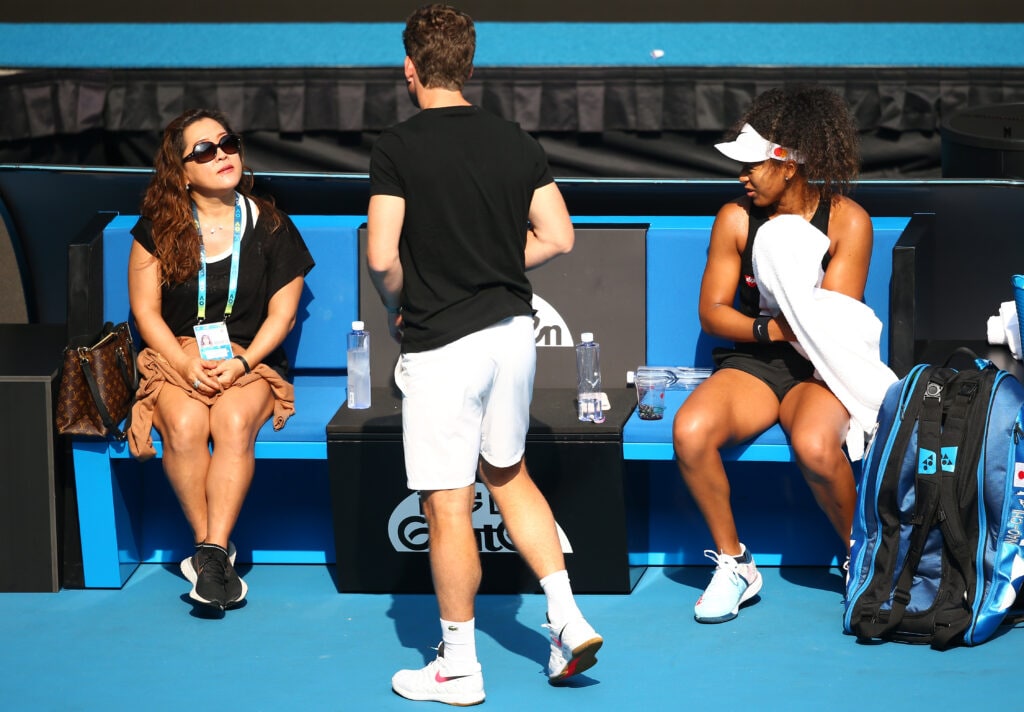Naomi Osaka opens up about receiving racist backlash for representing Japan in the Olympics
The world’s number-two ranked tennis player said critics told her that her “Black Card” was revoked
Tennis superstar Naomi Osaka revealed she was targeted with racial backlash for her decision to represent Japan in the 2021 Tokyo Olympics.
The 23-year old tennis champion discussed her decision and the ensuing backlash in her recently-released self-titled Netflix docuseries, where she said some critics told her that her “Black card” was revoked.
Osaka was born in Chūō-ku, Japan in 1997 to a Japanese mother and a Haitian father before moving to the United States at age three. She said in the docuseries that she has represented her birth nation as an athlete for a long time.
“I’ve been playing under the Japan flag since I was 14. It was never even a secret that I’m going to play for Japan for the Olympics,” she said.
Osaka changed her citizenship from American to Japanese in 2019, and earlier in 2018, her mother Tamaki Osaka told the Wall Street Journal that her daughters were raised to know all aspects of their heritage.
“She was born in Osaka and was brought up in a household of Japanese and Haitian culture. Quite simply, Naomi and her sister Mari have always felt Japanese, so that was our only rationale,” she said. “It was never a financially motivated decision, nor were we ever swayed either way by any national federation.”
MELBOURNE, AUSTRALIA – JANUARY 19: Naomi Osaka of Japan is seen with her mother Tamaki Osaka and coach Wim Fissette ahead of the 2020 Australian Open at Melbourne Park on January 19, 2020 in Melbourne, Australia. (Photo by Mike Owen/Getty Images)
In the docuseries, the world’s second-ranked women’s tennis player continued that despite her long history of representing Japan, she still received messages online criticizing her for her Olympic decision, even going so far as to question her Blackness.
“So I don’t choose America, and suddenly people are like, ‘Your Black card is revoked,’” Osaka said. “And it’s like, African-American isn’t the only Black, you know? I don’t know, I feel like people don’t know the difference between nationality and race because there’s a lot of Black people in Brazil, but they’re Brazilian.”
Osaka will go into this summer’s Olympic Games ranked second in women’s tennis singles by the World Tennis Association, and once held the top spot back in January 2018.
In February Osaka defeated 39-year-old tennis legend Serena Williams en route to winning her second Australian Open championship.
“I don’t know if there’s any little kids out here today, but I was a little kid watching her play,” Osaka said regarding Williams after their match. “And just to be on the court playing against her, for me, is a dream.”
The Netflix series Naomi Osaka is available now, with three episodes each roughly 30-45 minutes long.
The show’s description says: “This intimate series follows Naomi Osaka as she explores her cultural roots and navigates her multifaceted identity as a tennis champ and rising leader.”
Have you subscribed to theGrio’s “Dear Culture” podcast? Download our newest episodes now!
TheGrio is now on Apple TV, Amazon Fire and Roku. Download theGrio.com today!
The post Naomi Osaka opens up about receiving racist backlash for representing Japan in the Olympics appeared first on TheGrio.

